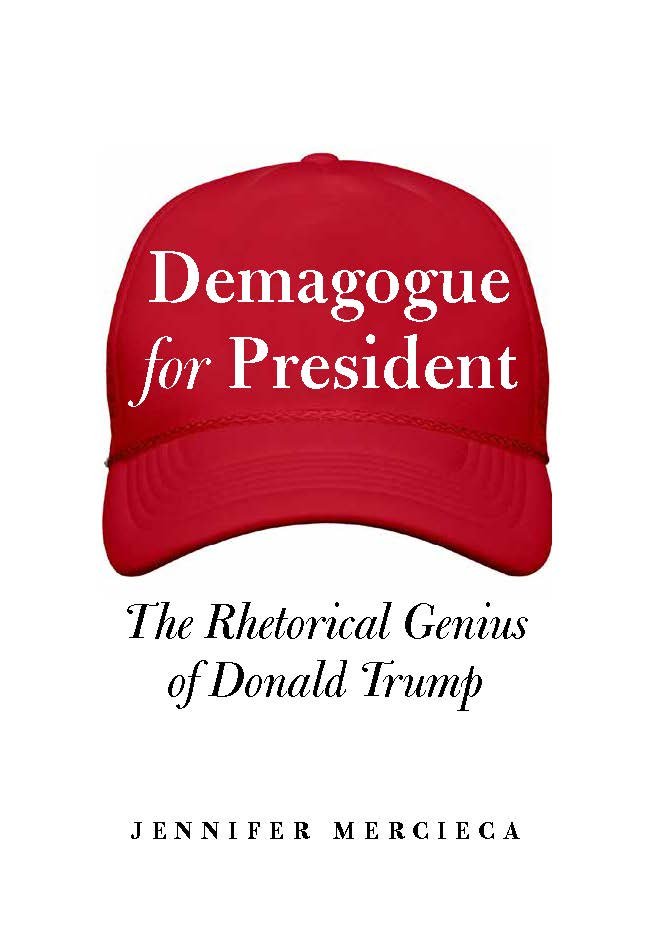Trump Speak
The President says a lot of things. How damaging can he be?
Read
In less than a week, Donald Trump told Americans not to let coronavirus “dominate” them, spread falsehoods about the flu, and told a violent hate group to “stand back and stand by.” These are just the sort of statements that make him a demagogue, says Texas A&M rhetorician Jennifer Mercieca. This time, Mercieca helps Will and Siva make sense of the president’s penchant for inflammatory language. How has it overshadowed the public sphere for five years, and what does it say about the state of our democracy?
Meet
Jennifer Mercieca is a historian of rhetoric and an associate professor of communication at Texas A&M University. She is the author of Demagogue for President: The Rhetorical Genius of Donald Trump, published earlier this year. Focusing on political rhetoric and anti-partisanship, her research examines how public discourse does — and doesn’t — live up to democratic principles. Mercieca’s popular work has appeared in USA Today, the New York Times, The Guardian and other media sources. Follow her on Twitter @jenmercieca.
Brush up on your Latin in Demagogue for President. Using Trump as a foil, Mercieca walks readers through rhetorical devices like ad hominem, ad baculum, ad populum, reification and more, and she shows us why we should be able to recognize them.
In this “field guide” to Trump’s rhetorical style, Mercieca tells readers of The Conversation why and how his words tilt authoritarian.
Can voters who long for authoritarianism lift Trump to victory again? Mercieca ponders this question for The Guardian.
“I’m not tweeting it; I’m just retweeting it.” This kind of logic — or paralipsis — is the bread and better of the president’s brilliant word play, Mercieca argues. And in an op-ed for the Houston Chronicle, she demonstrates how it helps him skirt the charge of “racist,” even as he appeals to white nationalists.
Mercieca’s first book is Founding Fictions (2012, University of Alabama Press), an extended analysis of how Revolutionary-era Americans imagined themselves as citizens.
Learn
Read about “Trump’s Twitter Presidency,” in these nine takeaways from the New York Times.
The Kettering Foundation, a nonpartisan group that supports deliberative democracy, partners with citizens and communities to improve public discourse. You can find all of the foundation’s published research and brochures here.
In 2017, Bill Moyers and Henry Giroux offered a forceful critique of Trump’s alternative-truth telling — comparing it to the “doublespeak” of George Orwell’s dystopian novel 1984.




